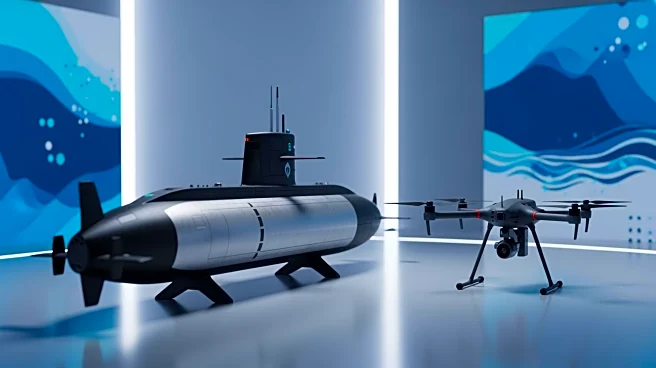What's Happening?
Lt. Gen. Jim Glynn, commander of Marine Corps Forces Pacific, has called on the defense industry to provide multiple prototypes for testing rather than a single unit. Speaking at the AFCEA TechNet Indo-Pacific
conference, Glynn emphasized the need for rapid experimentation and feedback to ensure readiness for immediate combat situations. He highlighted the importance of having several prototypes to test and improve upon, rather than relying on the acquisition system which may take years to deliver. Glynn also discussed the Marine Corps' efforts to advance drone technology, aiming to enable a single operator to control swarms of drones, enhancing operational capabilities in the Indo-Pacific region.
Why It's Important?
The call for multiple prototypes reflects a shift towards more agile and responsive military procurement processes. By enabling rapid testing and feedback, the Marine Corps can better prepare for immediate threats, particularly in the strategically critical Indo-Pacific region. The emphasis on drone technology and swarm capabilities indicates a focus on modernizing warfare tactics to address emerging challenges. This approach could lead to faster deployment of effective technologies, potentially giving the U.S. military a strategic advantage in global conflicts.
What's Next?
The Marine Corps is expected to continue pushing for advancements in drone technology, with a focus on integrating swarm capabilities. Industry partners may need to adjust their production strategies to meet the demand for multiple prototypes, fostering a closer collaboration with the military. This could lead to accelerated development cycles and more innovative solutions being deployed in the field. The ongoing emphasis on readiness and rapid response may also influence broader military procurement policies.
Beyond the Headlines
The shift towards rapid prototyping and testing could have long-term implications for military procurement, potentially leading to a more flexible and adaptive acquisition system. This approach may also encourage innovation within the defense industry, as companies strive to meet the demand for cutting-edge technologies. The focus on drone swarms highlights the evolving nature of warfare, where unmanned systems play a crucial role in strategic operations.











